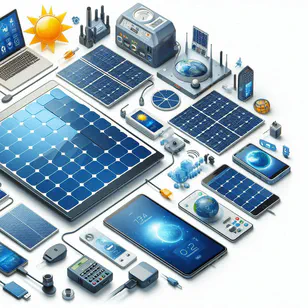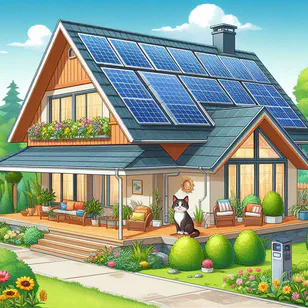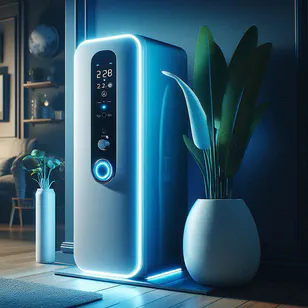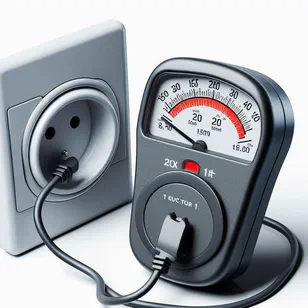Imagine you have a 5 kW solar power station, but your home is only consuming 2 kW at the moment. What happens to the surplus energy your panels are generating? Will it cause any damage? Could it overheat or even explode?
This is a common concern for those unfamiliar with solar power systems, and it’s important to understand how the system regulates excess energy to avoid potential hazards.
The Role of Solar Charge Controllers
The good news is that off-grid solar systems are designed to manage excess energy. A solar charge controller, whether built into the inverter or a separate component, is responsible for regulating the energy flow. If your batteries are fully charged and your home’s power consumption is lower than the system’s output, the charge controller will limit the generation of solar power.
This means your solar power station will only produce as much electricity as you can use and store in the battery. If you’re consuming less, the system won’t produce more than what’s needed.
Where Does the Extra Energy Go?
If your solar panels generate more power than you can use, the unused energy doesn’t simply disappear. Instead, it gets dissipated as heat, warming up your solar panels slightly. While this heating is generally minimal, prolonged overheating can lead to a slight degradation of your solar panels over time—about 1-2% every decade. This is not ideal, but the impact is minimal in most cases.
It would be best to utilize all the energy your solar panels produce. However, in off-grid systems, capturing every watt of energy can be challenging and costly. This is why grid-tied solar stations are more efficient at redirecting surplus energy back into the grid. Off-grid systems require more strategic management of energy generation and storage, especially during peak production times.
Maximizing Energy Use in Peak Generation
To ensure your system is working as efficiently as possible, there are ways to capture more of your solar energy during peak generation hours. By optimizing your energy consumption patterns or using energy storage systems effectively, you can reduce the amount of excess energy that goes to waste.
For more on optimizing your system’s efficiency, check out our article on maximizing solar power with MPPT controllers , which explains how charge controllers can enhance energy generation.
Conclusion
In off-grid solar systems, excess energy is safely managed by solar charge controllers. They limit the system’s output to prevent overproduction, while any unused energy is dissipated as heat. While this may cause minor panel degradation over time, the effects are typically minimal. To make the most of your solar setup, consider ways to optimize your energy consumption during peak production times.
If you’re wondering about the best placement for your solar inverter or UPS system to ensure optimal performance, check out our detailed guide on optimal placement for solar inverters and UPS systems .
For more in-depth advice on managing your battery settings and avoiding damage, explore our guide on optimizing LiFePO4 battery settings for inverters .
By following these strategies, you can ensure your solar system operates efficiently while minimizing waste and extending the lifespan of your equipment.




